On May 27-28, 2024, 80 Years after Bretton Woods: Building an International Monetary and Financial System for All & 2024 Tsinghua PBCSF Global Finance Forum were successfully held in Hangzhou, Zhejiang Province, China. On the afternoon of the 28th, the SESSION VIII: Bretton Woods for the Future was successfully held.
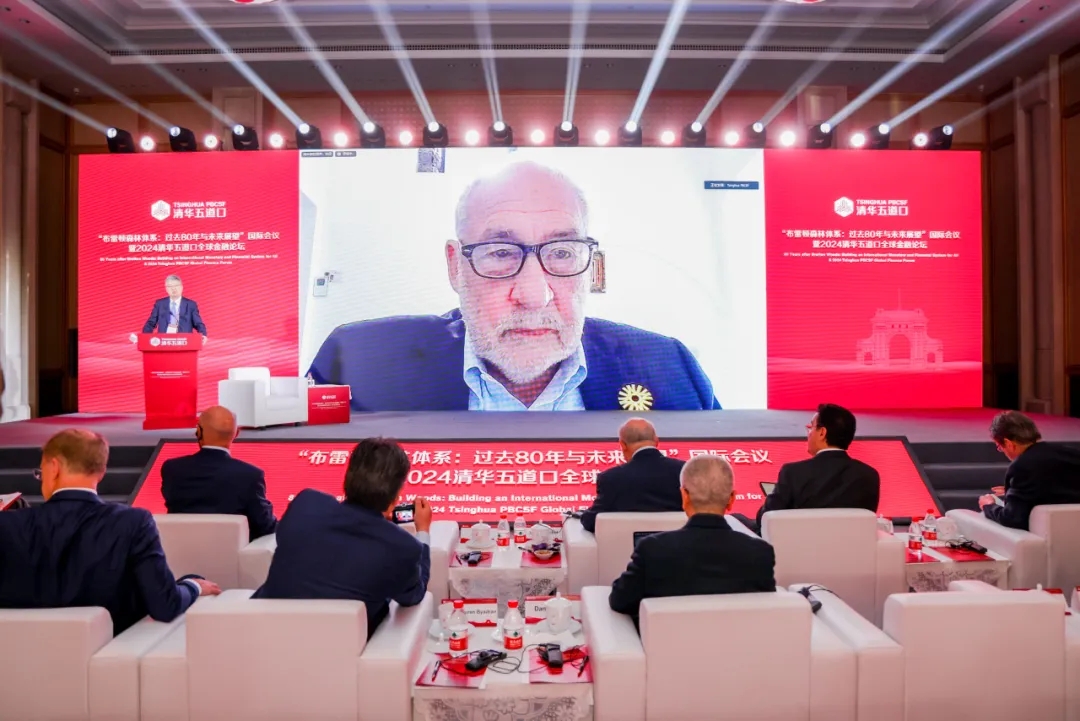
Joseph Stiglitz, Nobel Laureate in Economics 2001; Professor, Columbia University delivered an online keynote speech.
Joseph Stiglitz stated that the IMF must contribute to the stability of the global financial system. In sovereign debt restructuring, it is crucial to ensure that the private sector receives favorable treatment, and the IMF should adjust its policies on additional loan charges and interest rates. Stiglitz noted that although the Bretton Woods system reshaped the post-war financial system, its original intentions were flawed, leading to many disastrous consequences. In recent years, the IMF has called for strategic reforms to the entire system. The multiple global economic crises since 2008 have shown that the existing system is still imperfect, necessitating a new Bretton Woods system. He suggested that contracts beneficial to the private sector be designed in sovereign debt restructurings, lowering borrowing rates to reduce the risk of default, and adjusting the IMF's loan interest rates and additional charges, which can be as high as 8%, to encourage private sector participation and thus enhance financial stability.
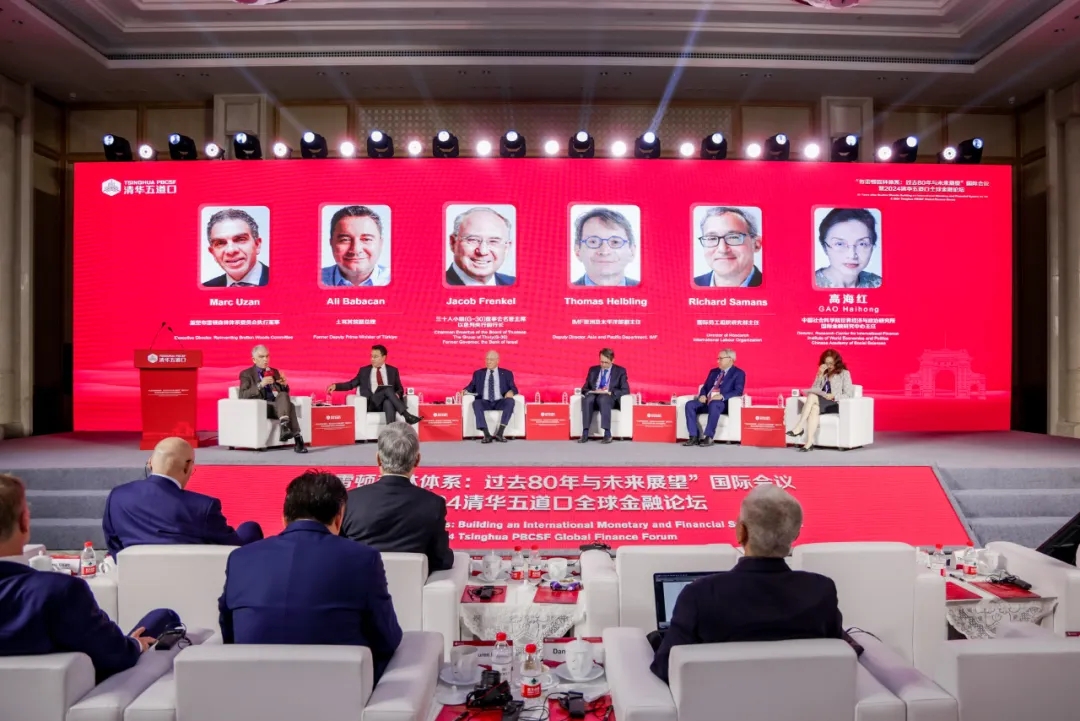
The picture shows a roundtable discussion in progress
Ali Babacan, Former Deputy Prime Minister of Türkiye, Jacob Frenkel, Chairman Emeritus of the Board of Trustees of the Group of Thirty(G-30); Former Governor, the Bank of Israel, Richard Samans, Director of Research, International Labour Organization, GAO Haihong, Director, Research Center for International Finance, Institute of World Economics and Politics, Chinese Academy of Social Sciences joined the panel discussion. Marc Uzan, Executive Director, Reinventing Bretton Woods Committee and ZHU Min, Founder, Global Economic Governance 50 Forum; Former Deputy Governor, PBoC; Former Deputy Managing Director, IMF co-moderated the session.
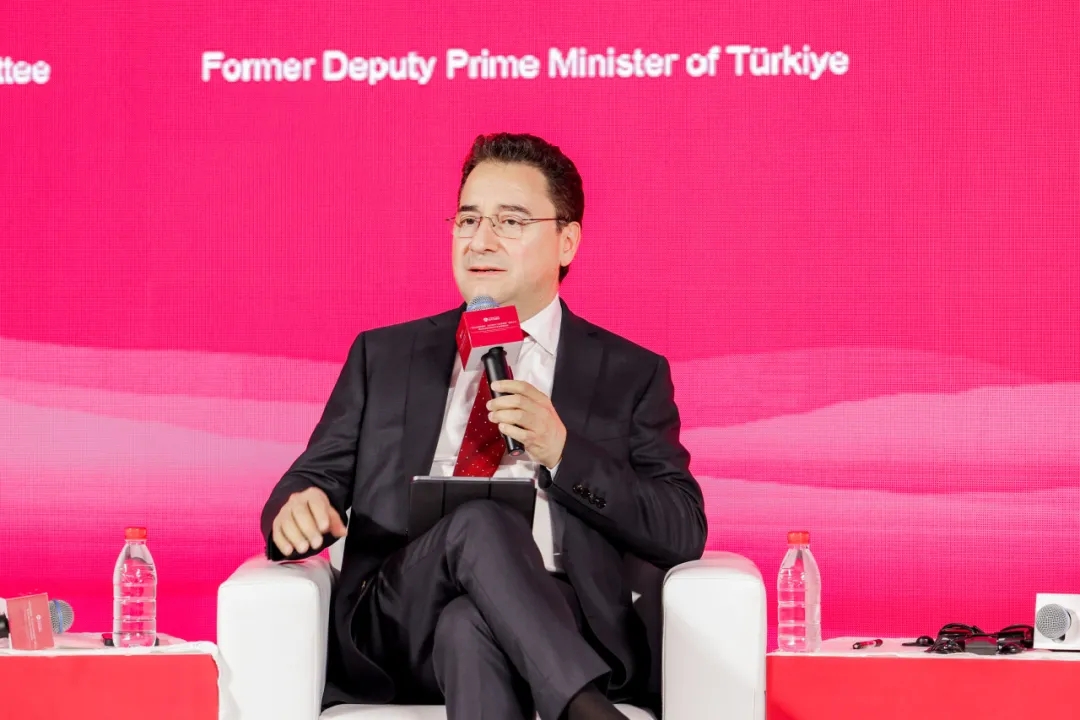
The picture shows Ali Babacan
Ali Babacan expressed that reforming the Bretton Woods system requires taking into account the realities of geopolitics, as well as the social development and technological progress of various countries. Cooperation and coordination are necessary, as no single country can manage alone. To enhance the effectiveness of international decision-making bodies like the IMF, it is crucial to amplify the voices of developing countries. Babacan believes that the G20 serves as an excellent platform for dialogue, possessing strong representativeness and the capacity to comprehensively discuss global economic issues. The IMF and the World Bank should participate in the G20 meetings annually to strengthen multilateral cooperation. He emphasized that currency stability is crucial, and currencies should not be "weaponized," as doing so would undermine public confidence and prompt the search for alternative currencies.

The picture shows Jacob Frenkel
Jacob Frenkel stated that we need to design a new system that should be as simple as possible but not overly simplistic, because our world is complex and asymmetrical. 'Now is the time to test the resilience of this system.' Frenkel emphasized that capital markets have played a significant role over the past few decades, but regulation always lags behind market developments. In rebuilding the Bretton Woods system, changes in the capital markets must be considered. The current global economic environment of high interest rates, high inflation, and low growth is the critical moment to test the resilience of the new system, as only under such conditions can the effectiveness of the mechanisms truly be verified.
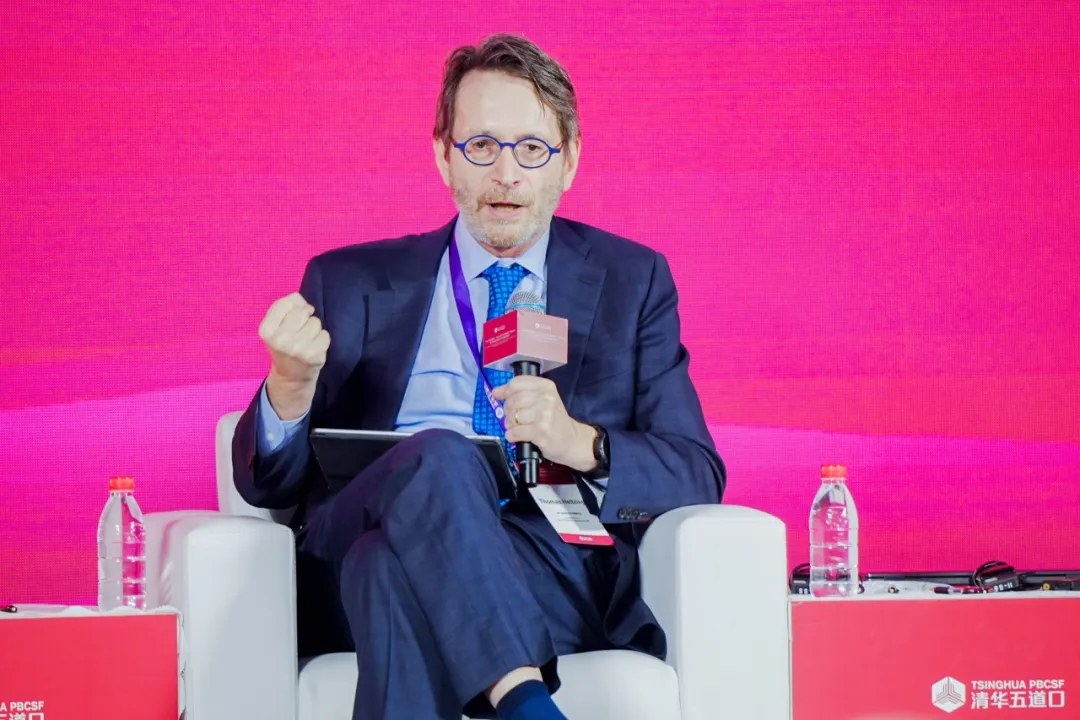
The picture shows Thomas Helbling
Thomas Helbling stated in his speech that the Bretton Woods system is a very important part of the international monetary system. The founding mission of the IMF is still ongoing and is being adjusted and evolved according to changes in circumstances. The primary purpose of the IMF is to provide stability to the global financial system, promote international trade and economic growth, and assist member countries in crisis. As the global economy and national situations evolve, the role of the IMF needs reinterpretation. Currently, the IMF focuses on the spillover effects of situational changes, the impact of international trade and industrial policies, and issues of market failure. Multilateralism faces challenges brought by geopolitics, but international organizations such as the IMF and the World Bank can still foster consensus and solutions in sovereign debt restructuring and international trade.
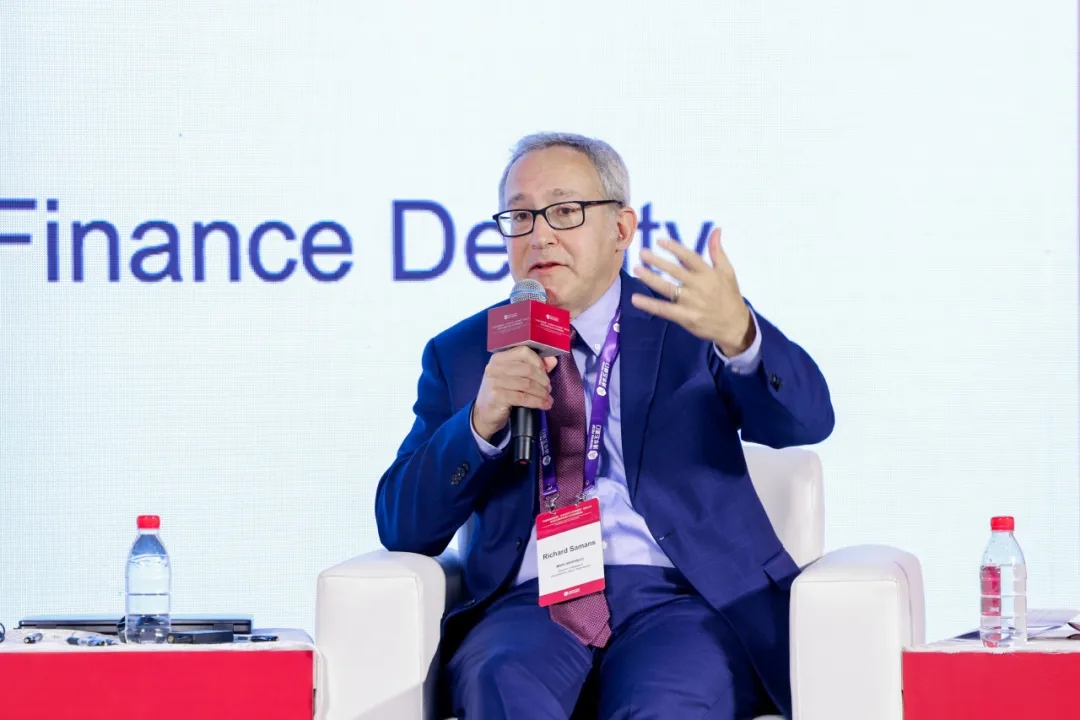
The picture shows Richard Samans
Richard Samans expressed that reshaping a cooperative Bretton Woods system to achieve sustainable finance requires improving the efficiency of global capital allocation. Sustainable development goals include improving living standards, achieving economic growth decoupled from greenhouse gas emissions, enhancing median household living standards, and implementing inclusive policies. Achieving these goals requires international cooperation and further optimization of public and private capital distribution. Samans believes that the IMF should redefine Special Drawing Rights (SDR) to use resources wisely to support countries with insufficient renewable energy and social safety nets, and to advance reforms in the international financial architecture with social attributes.

The picture shows Gao Haihong
Gao Haihong stated that the reshaping of the Bretton Woods system in the future should particularly focus on three aspects: currency, institutions, and governance. She noted that although the Bretton Woods system was designed 80 years ago with considerations for currency and institutions, the changes over time, new geopolitical tensions, national protectionism, and sanctions need to be incorporated into the considerations for a new financial framework. These factors increase global financial risks, affect payment and reserve currency systems, and challenge global financial stability. Gao Haihong believes that maintaining global financial stability requires the establishment of an effective global financial safety net, with the IMF still playing a central role, but needing reforms to increase its adaptability. Additionally, regional financial arrangements and bilateral currency swaps also play an important role in crises, especially the role played by the Federal Reserve as the lender of last resort through dollar swaps. Gao Haihong pointed out, however, that governance reform remains a challenge, as the IMF's total quota review completed last year failed to address core issues such as quota distribution and the proportion of developing countries.

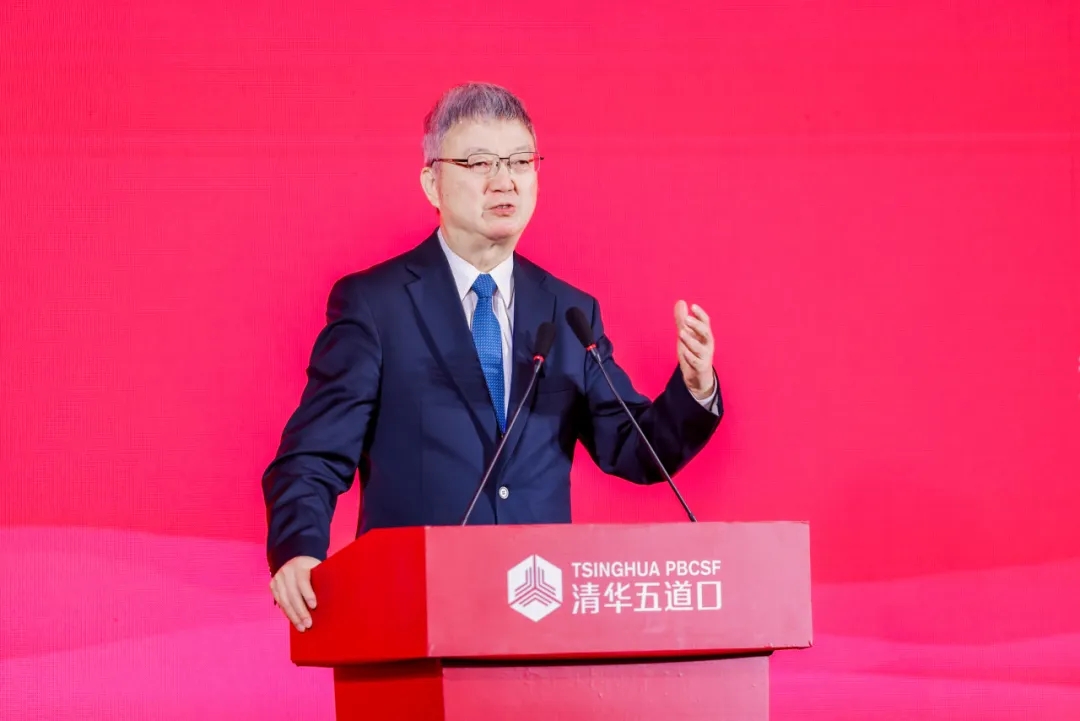
Marc Uzan and Zhu Min moderated the panel session.